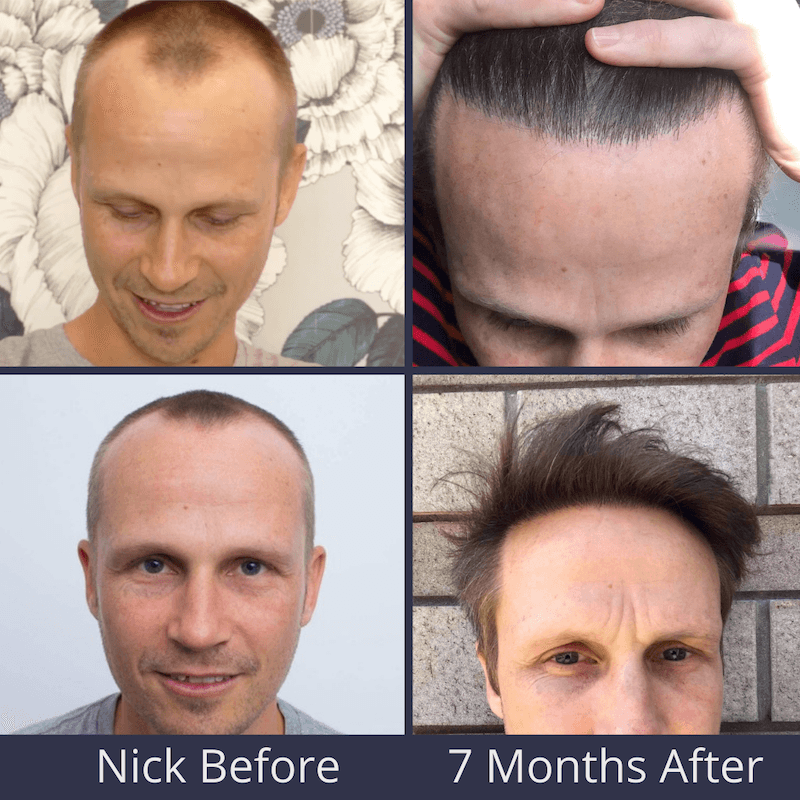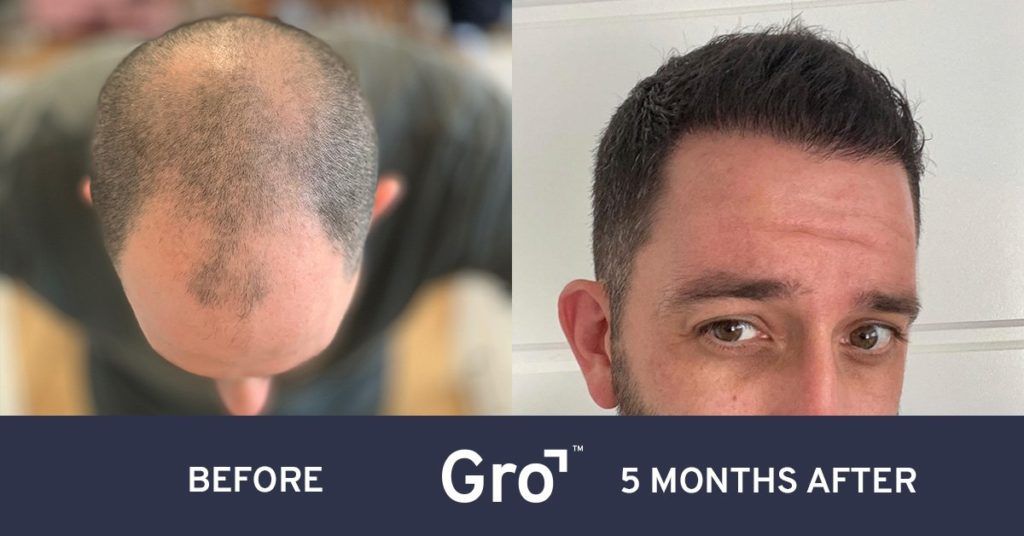Noticing hair loss is a big deal for anyone, but noticing hair loss in your twenties can feel like particularly cruel situation to find yourself in. Hair loss under the age of 30 is becoming increasingly common at the same time as our society is becoming more and more focused on looks. It can be extremely distressing and isolating to wonder what the reasons for hair loss may be when you haven’t even turned 30 yet, not just for looks but for your health too.
Am I going bald?
Am I sick?
Is this normal?
Why me?

These are some of the questions you may be asking yourself when you notice that you’re losing hair. Rest assured, there are numerous reasons for hair loss under the age of 30 and not all of them are permanent. Understanding why you’re losing hair can help prevent further loss and the right treatment may even help you regrow thicker and denser hair.
In this article, we’ll discuss the top 3 reasons why people under 30 experience hair loss and how you can slow down, stop or prevent it.
Is it normal to lose hair at 30?
Hair loss in your twenties and thirties is not uncommon, with around a quarter of people noticing hair thinning and loss or having hair growth concerns. In fact, hair loss is becoming more common amongst young people due to the popularity of different restrictive diets.
What causes hair loss in your 30s
Hair loss in your 30s could be caused by a multitude of reasons, from lifestyle to genetics and medical conditions. It’s important to narrow down any potential causes of hair loss with a medical expert to determine the correct treatment. However, here are the most common reasons for hair loss in under 30-year-olds.
Top 3 reasons for hair loss under 30
1. Scalp Condition
Psoriasis, Seborrheic Dermatitis and Folliculitis are skin and scalp conditions that can cause short-term hair loss. In the minority of cases, where the infection has caused scarring, the hair loss may be permanent. In most cases, the hair regrows once the scalp condition has been treated. In the case of a scalp condition, it’s important to speak to a medical expert for a diagnosis, so the best treatment can be determined.

2. Stress or Physiological Shock
Do you work too hard? Stay up too late? Think too much? Train too hard? Take prescription medication or supplements? Try strict diets? Did you suffer a loss recently?
Any kind of a significant shock to the system has the potential to disrupt the normal hair growth cycle. Rapid changes in diet and lifestyle, as well as health concerns (mental and physiological), can trigger hair loss or slow down hair growth. High levels of stress, illness, certain medications or starting a new, strict diet are common prompts for hair growth concerns.
Thankfully, this type of hair loss is typically temporary and normal hair growth can resume once the trigger has been addressed.
To prevent or address this type of hair loss you can:
- Try gradual changes rather than dive in head-first so as not to shock your body
- Eat a nutritious, balanced diet with sufficient protein, vitamins and minerals
- Have a healthy lifestyle – get enough quality sleep, exercise regularly, drink plenty of water
- Manage stress levels – do exercise and activities you enjoy and find time to relax
3. Genetics
Androgenetic alopecia, also known as male or female pattern baldness, is the most common cause of hair loss. This genetically influenced hair loss condition is caused by changing hormone levels that impact the hair growth cycle. The hair growth phase progressively shortens but shedding remains the same, leading to hair being shed faster than it can grow.
Male pattern baldness occurs in a distinctive pattern in men, starting with a receding hairline and thinning of the crown, progressing to complete baldness on top and horseshoe-shaped hair around the sides and back. Over time, the loss can progress to total baldness. Female pattern baldness occurs as diffuse thinning all over the scalp.
In many cases, prescription medication can slow down the effects of androgenetic alopecia, but the only permanent solution is hair transplantation. Gro is the leading provider of the most refined hair transplant technique with natural results guaranteed. You can regrow your own hair, for life.
What to do about premature hair loss
If you’re getting distressed, finding an increasing number of loose hairs on your pillow or in the shower, the first thing you need to do is take a deep breath. Know that this doesn’t have to be the end – there are multiple tried and tested treatment options available for early onset hair loss.
When you’re facing hair loss, especially at an early age, it’s important to speak with a hair loss specialist to get an accurate diagnosis ASAP. An expert will be able to tell you exactly why you are losing hair and how you can treat, stop or slow down the hair loss early on.
A medical expert can help rule out any reversible causes of hair loss, and even if your hair loss is genetic, they can prescribe proven medical treatments. Finally, our modern hair transplants using the follicular unit extraction method, performed by a trained and experienced doctor, give completely natural results for those who already lost a bit of hair.
reGro™ hair transplant before & afters


Why is my hair thinning under 30?
Everyone is different, but help is out there! The only way to find out is to seek advice from a professional.
At Gro, our purpose is to make sure you get the right treatment for you, based on your goals and stage of hair loss. Unlike other online clinics, we also offer in-clinic treatments and advice, should you need them, as well as access to proven prescription treatments online.
We help you gro your own hair back with complete hair loss solutions including:
For personalised treatment information, book an online consultation with one of our hair loss doctors. If you want to know what a hair transplant could do for you and what it would cost, book an online or in-clinic consultation with one of our Hair Growth Specialists. Alternatively, call us on 1300 787 563.












